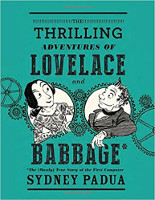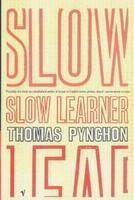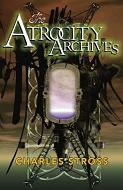Here's a fact (some) literature snobs would rather ignore: Doris Lessing, Literature-Nobel-Prize winning writer, wrote Science Fiction (or, rather, Space Fiction, as she prefers to call it). And not only that, but she considers it some of her best work...
I have to agree – this is some of the best SF I have come across in my (admittedly limited) reading career.
The Sirian Experiments is the 3rd book in her Canopus in Argos: Archive series. The two earlier books – Shikasta and The Marriages Between Zones Three, Four, and Five – play in the same universe, but are not linked as a continuous storyline; although I found the counterpoint of Shikasta and the book at hand rather interesting, as they, in parts, depict the same events from different viewpoints. But this aside I would expect that The Sirian Experiments can be read and enjoyed on its own.
I remember, before I myself attempted this genre of space fiction, reading an agreeable tale about a species of intelligent giraffes who travelled by Spaceship from their solar system to ours, to ask if our sun was behaving cruelly to us, as theirs had recently taken to doing to them.
I remember saying to myself: Well, at least the writer of this tale is not likely to get industrious letters asking what it is like to be a giraffe in a spaceship.
The book starts with an introduction by the author, responding to critics and criticisms: yes, she has created a cosmology – for these books. Yes, making up new things is what writers do. Yes she is writing SF (space fiction, she calls it). It is an eloquent (and funny) rebuttal of a lot of the (presumably) silly comments and criticisms she appears to have received. Class, and great writing in itself. Nobody tell Margaret Atwood...
What of course I would like to be writing is the story of the Red and White Dwarves and their Remembering Mirror, their space rocket (powered by anti-gravity), their attendant entities Hadron, Pion, Lepton, and Muon, and the Charmed Quarks and the Coloured Quarks.
But we can't all be physicists.
But back to the book – The Sirian Experiments deals, like all books in the series, with a number of concepts and questions around Uplifting, Forces/Assisted Evolution, and, especially in this book, Evolutionary Engineering as performed by the Sirian Empire.
Nominally it describes a number experiments and the development of races for various purposes; though the eyes of a top official of the Sirian Colonial Service called Ambien II. The account starts around the extinction of the Dinosaurs (yes, this mainly concerns Earth and its history, like Shikasta did from a Canopean point of view), through the failure of the Canopean 'Lock' and the flipping of Earth on its axis and the shifting thereof to – well, not as far as the first book of the series did, for reasons I really cannot spill here as part of a review!
I said it nominally deals with this, because firstly it becomes clear quite early on (at least to the reader) that there are also experiments performed and evolution progressed on the Sirians by the more developed Canopean empire – and of course, at yet another level, the author uses the experiences of Ambien II to illustrate a multitude of points about ourselves, our history, our beliefs and blind spots. And, I suspect, this is where a number of Lessing's critics did go wrong – this is not a story about an alternative Earth, with made up cosmology and external forces. This is a story about us - holding a mirror in front of those willing to see. Needless to say that this is subtly and skilfully done.
The book never moralises, for which I was thankful as it all so easily could have done, But is asks profound questions about our societal and individual development, about learning to listen, hear, believe, and then change one's beliefs and behaviour. And it asks about our relationship and behaviour towards ourselves, as well as other living beings, our environment, and our world (and, by extension, our universe, should we ever manage to leave this planet).
One thing that I rather enjoyed reading (and mulling over) was a case study, showing the background of some of the Sirian mindset and decisions. It shows how their technical development arrived at a peak – and left billions and billions of individuals in their Empire with nothing to do – it 'set them free from toil' – only to fall into despair and depression: “we had not understood that there is inherent in every creature of this Galaxy a need, and imperative, towards a continual striving, or self-transcendence, or purpose”. So they see every symptom of mass psychosis, random and purposeless violence, causeless epidemics and widespread neurosis, colloquially known as the “Sirian Dark Age”. The solution the bureaucrats came up with was a drastic decrease in birth numbers, and thus subsequently in population numbers. And still they needed to breed new races who would accept to do heavy manual labour, as their citizens were not willing (or mentally able!) to do this anymore.
I won't spill more of what this meant etc – read the book and find out! But I found it a rather interesting - and most likely more realistic - counterpoint to Bank's Culture.
I shan't be going on for longer – I'm sure you get the gist of what this is, as well as the message that I really rather liked the book, and can recommend it to anyone interested in societal and developmental questions and thought experiments.
More Doris Lessing
Title: The Sirian Expe
Series: Canopus in Argos: Archives
Series Number: 3/5
Author: Doris Lessing
Reviewer: Markus Thierstein
Reviewer URL: http://thierstein.net
Publisher: Grafton
Publication Date: 1982
Review Date: 110619
ISBN: 0586054758
Price: UKP 3.99
Pages: 331
Format: Paperback
Topic: SF
Topic: Evolutionary Engineering














